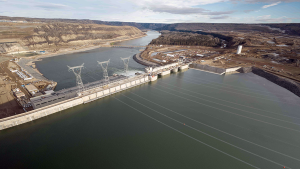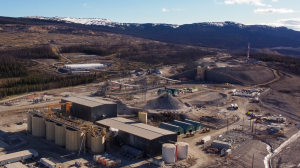Two British Columbia construction industry leaders are advocating on several fronts as the province heads to the polls in late October.
Vancouver Regional Construction Association (VRCA) president Jeannine Martin and British Columbia Construction Association (BCCA) president Chris Atchison hosted BC Conservative Leader John Rustad for the third of three “Construction Conversations” sessions and made time after the event to speak with the Journal of Commerce about the industry’s top priorities with the election slated for Oct. 19.
As with previous sessions with B.C. Premier David Evy and former BC United Leader Kevin Falcon, prompt payment was top of mind for both association heads and other stakeholders speaking with Rustad.
Atchison stressed to each candidate during the sessions “the importance of construction to the provincial economy as 10 per cent of our GDP and representing 250,000 voters, not to mention family and friends who might be influenced by them.”
“It’s a considerable block and we have questions and needs, and top of the list is to fulfill a promise of prompt payment legislation,” he said. “It’s not so much of a promise as common-sense legislation that exists in other jurisdictions in Canada that needs to come to B.C. to ensure the economy and employers that help build this province stay healthy and that the workforce they employ stays in British Columbia.”
Regardless of which party wins, Martin said, prompt payment will be the primary advocacy issue for both associations.
“Our cross-jurisdictional analysis (for prompt payment) is ready to be delivered that day and we’ll be full court press on that. We’ll be very disappointed if whoever takes office doesn’t push that forward right away,” she said.
“It’s all part and parcel of a healthier construction economy which we know all of these parties will count on,” Atchison added. “The one fortunate enough to be elected, part of their mandate will heavily involve the industry.”
Martin also raised with each candidate the possibility of a “minister of construction” to handle the many aspects of the industry affecting the economy, housing and other factors.
“It’s a good launching point for dialogue with these candidates. When you look at issues that are foundational to our community in B.C. (such as) the labour crisis, the housing shortage, immigration…all these things touch the construction industry,” Martin said.
“It would make sense for someone to look over this in a holistic way and not have these ministries separated. (For example, immigration may be moving forward, but are we getting the right people in the right spots, getting credential recognition for the jobs we need the most? Are we building housing we can actually afford?
“We feel a minister of construction could look over all of that and give it a holistic push.”
In an unprecedented turn of events in B.C. politics, Falcon dropped out of the race last week and some former BC United candidates may run under the BC Conservative banner, which realigns the race along wider ideological and policy lines.
“It raises the stakes quite a bit for everyone involved. It gets the interest of all British Columbians and I think we’re all in for an exceptional run-up to this election,” Atchison said.
Martin also pointed out with BC United out of the race it falls upon the other two candidates to prove they hear the industry’s concerns and will act once in office.
For more from Martin and Atchison listen to The Construction Record podcast here.











Recent Comments